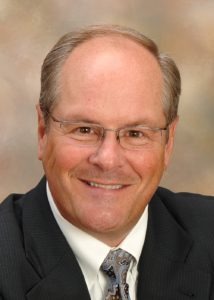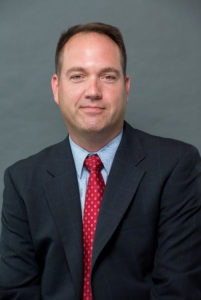“We are the solution,” industry execs tell Congress
Some 450 long-term care (LTC) industry professionals visited Capitol Hill May 23-24. They participated in more than 350 separate, private meetings with members of Congress and key legislative aides to let lawmakers know “We are the Solution” to providing efficient and high-quality care to America’s elderly.
“It was our largest congressional briefing attendance ever, and I think that was indicative of the seriousness of the issues facing us this year,” says Matthew Smyth, senior director of grassroots program at the American Health Care Association/National Center for Assisted Living (AHCA/NCAL).
The Issues
In addition to emphasizing quality improvements at LTC facilities across the country in recent years, a wide range of specific governmental issues were discussed during the meetings, with a focus on:
- The Medicaid Provider Assessment – 43 states and the District of Columbia use a provider assessment program, also known as a quality fee or tax, to fund their Medicaid payments. In some states, efforts are being made to reduce the current provider allowed tax rate of 6 percent to anywhere from 5.5 to 3.5 percent. AHCA/NCAL points out Medicare is already underfunded 90 cents on the dollar for skilled nursing care, and reducing the provider tax without a reasonable alternative would be unsustainable.
- Value-Based Purchasing (VSP Proposal – AHCA/NCAL opposes the Medicare Post-Acute Value-Based Purchasing Act (HR 3298), currently in the House Ways & Means Committee because it contains no quality provisions “and represents a pure rate cut as currently written.” The legislation would cut Medicare rates by 8 percent at a time when the Medicare Payment Advisory Commission (MedPAC) has confirmed SNF margins are at only 1.9 percent.
- Observation Stays – A three-day patient hospital stay is required for patients to receive Medicare reimbursement for skilled nursing care. An observation stay is technically deemed an outpatient service, although patients can be hospitalized for several days under this outpatient status. While Medicare covers 100 days of SNF care per episode of care following a qualifying three-day hospital stay, observation stays do not qualify, leaving patients liable for payment. AHCA/NCAL supports S843/HR.1571, which would deem an individual on observation stay as an in-patient with respect to the Medicare three-day stay requirement.
Attendee Reaction
In a video report to members of the Alabama Nursing Home Association, Vice-Chairman Mark Traylor discussed the meetings he and other industry executives from his state had with lawmakers.
“We really spoke to senators and our congressmen, and also people in our industry, about our issues,” Traylor says. “The provider tax, our matching funds that we we get in the state of Alabama, they were going to reduce that. We were able to, hopefully, get that deferred.
“The second thing was observation stays. What we’re trying to say is three nights in the hospital is three nights in the hospital, whether its observation or whether the patient was admitted.
“And the third thing that we’re working for is the arbitration clause. CMS has some specific language that potentially would not pay you if you had an arbitration in one of your facilities. We’re working to get that removed. It looks like we’re making headway and, hopefully, that’s going to be a better outcome for our patients as well as the facilities.”
Also included in the issues discussed with lawmakers was the Centers for Medicare and Medicaid Services (CMS) rule that establishes requirements for the qualities of settings eligible for Medicaid home and community-based services (HCBS) waiver reimbursement. Starting in 2019, all home and community-based settings must have certain qualities to provide Medicaid HCBS, including that the setting is integrated in and supports full access to the community.
Certain settings, such as SNFs will be explicitly excluded, while others will be presumed to have institutional qualities and require further review to receive HCBS waiver reimbursement. In its briefing paper for Congress, NCAL said it is concerned the requirements could exclude many assisted living communities from the Medicaid program, leading to reduced patient access and a significant overall increase in Medicaid expenditures.
According to NCAL, the rule could especially affect:
- Secured dementia/memory care units within a larger assisted living community or as a free-standing community;
- Continuing care retirement community arrangements where assisted living is located on the same campus as independent living and a SNF;
- Assisted living facilities built as a separate section of a SNF or is a converted section of a SNF;
- Assisted living facilities on the campus of, or adjacent to, a hospital or other healthcare provider; and
- Assisted living communities located at the edge of town or in a rural area that could be considered isolated.
Impact
Roxie Severance, executive director of the Morrison Nursing Home in Whitehead, N.H., and Brendan Williams, chief executive officer of the New Hampshire Health Care Association, discussed this issue with Sen. Kelly Ayotte, R-N.H. They reported she agreed to sign on to a bipartisan Congressional letter to CMS expressing concern about the impact of the regulation on patients.
“That is an excellent example of the impact that our Congressional visits had,” Smyth says, adding during the event Rep. Gregg Walden (R-Ore.) and Rep. Havier Becerra (D-Ca.) both stressed the importance of constituents connecting directly with members of Congress – both during events such as the Congressional Briefing and through follow-up contacts back home.
In fact, AHCA/NCAL urges members to invite lawmakers to their facilities for visits. Smyth says more than 250 facility tours took place last year, a fact that was applauded by House Majority Leader Kevin McCarthy (R-Ca.) during remarks at a Capitol Hill luncheon May 24.
Attendees took to Twitter during the two-day congressional briefing to comment on their experiences using the hashtag #WeAretheSolution.

Robert Gatty has more than 40 years of experience in journalism, politics and business communications and is the founder and president of G-Net Strategic Communications based in Myrtle Beach, South Carolina. He can be reached at bob@gattyedits.com.
Related Articles
Topics: Advocacy , Articles , Executive Leadership , Facility management , Medicare/Medicaid









